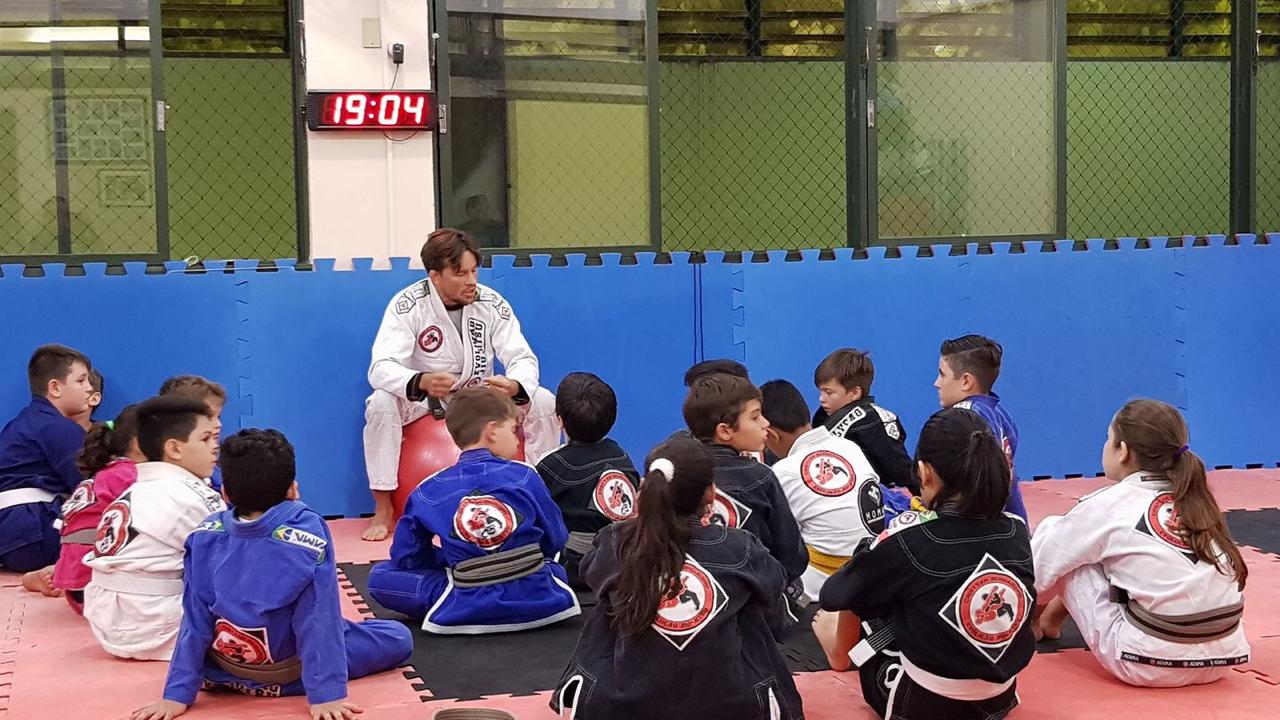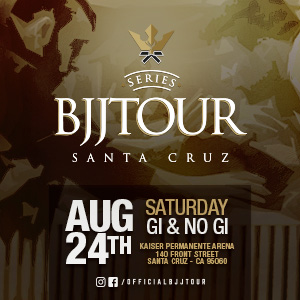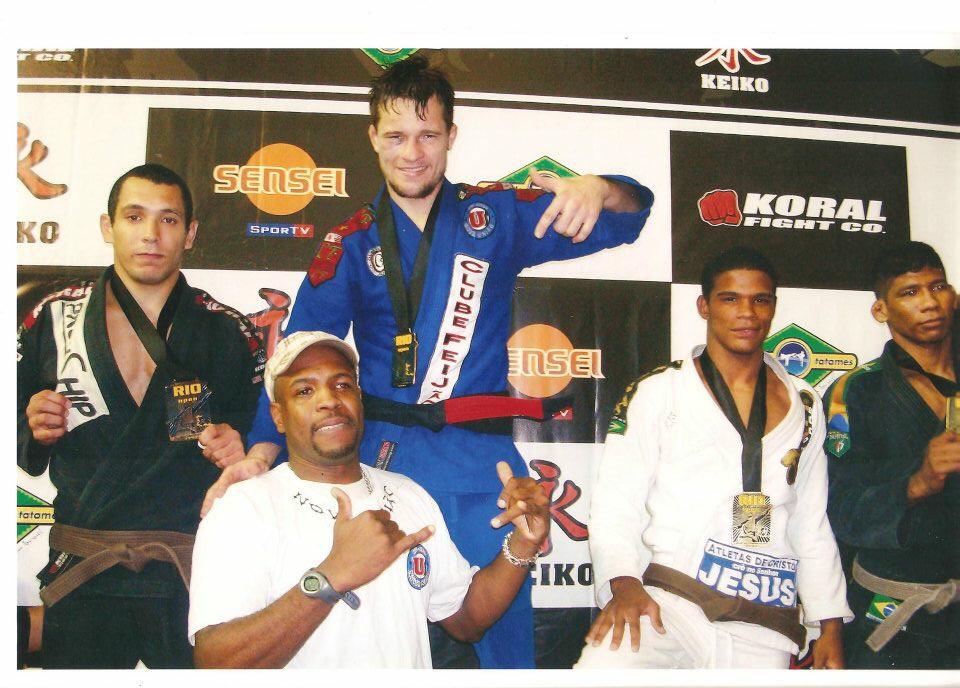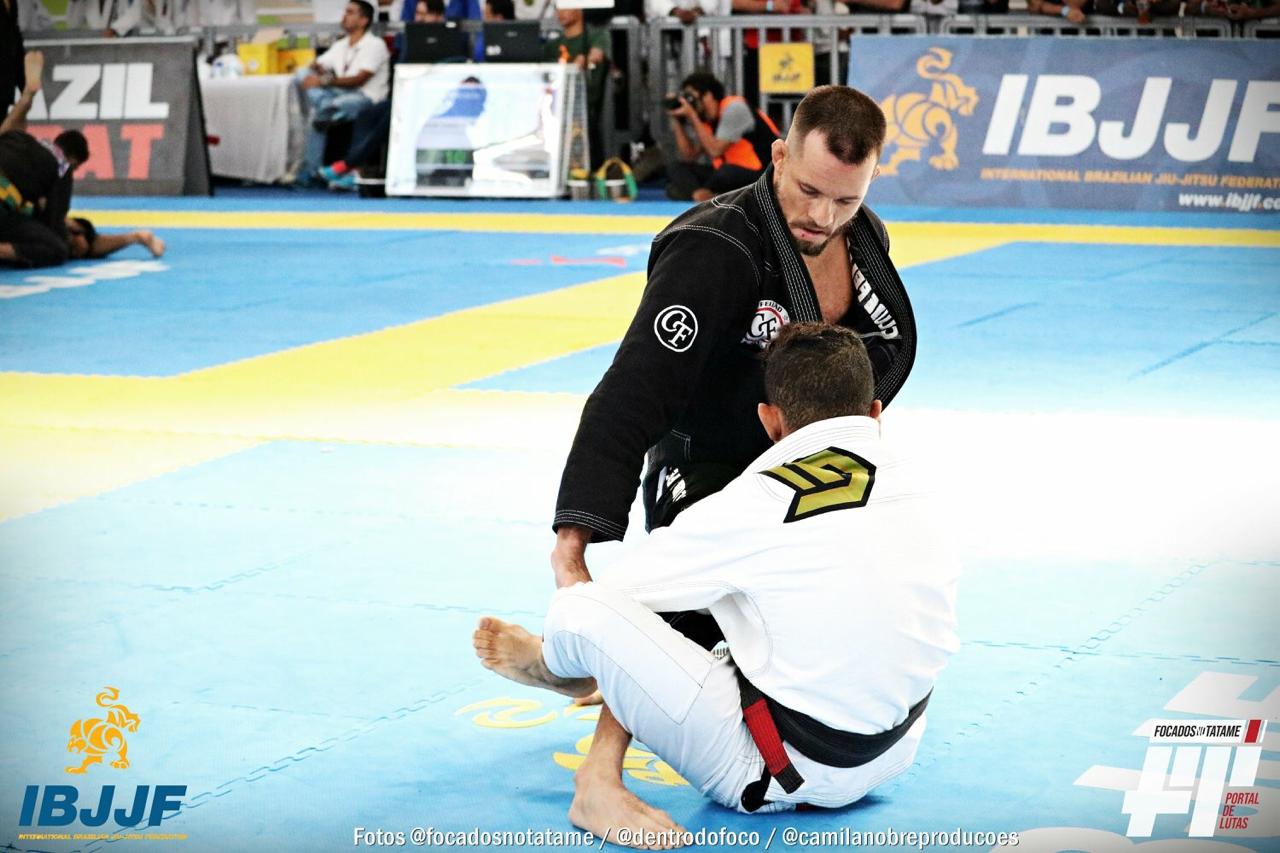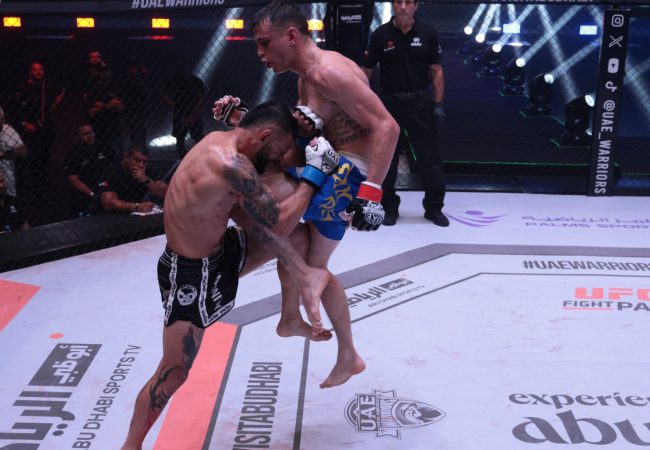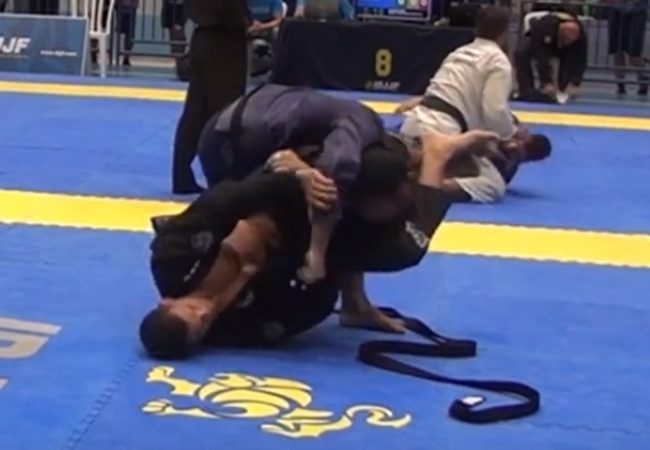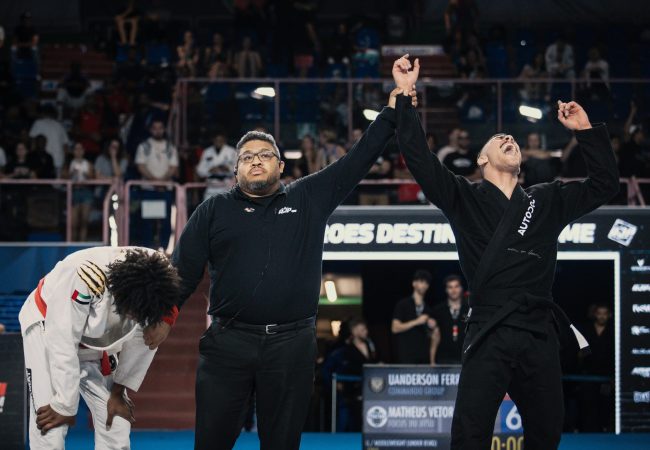Cristyan Martins, professor at our GMI Evolução Jiu-Jitsu, left Maringá, in Paraná, to fight some of the big IBJJF tournaments in the United States. The black belt was caught on the counter by the pandemic, and decided to stay there waiting until the championships be back.
In this chat with GRACIEMAG.com, the professor commented on his career, the direction of the academy and how he sees the future of his team. Check it out!
GRACIEMAG: What is your first memory wearing a gi?
CRISTYAN MARTINS: My first memory is in my childhood, when I felt in the skin of a boy the transforming power that Jiu-Jitsu has, and how he is capable of changing any human being. I was raised only by my mother, I didn’t have a father to teach me how to defend myself. With that I was a boy who didn’t have much confidence in me and security. But, through Jiu-Jitsu, I learned daily to have self-confidence, to have the means to defend myself and impose myself when I need it throughout my life. I owe it all to Jiu-Jitsu, my teacher, and my cousin-brother who took me to train.
When did you realize that you would live from and for Jiu-Jitsu?
I fell in love with Jiu-Jitsu from the beginning and I think it fueled this desire to be a teacher already in the colored bands. I loved it when my teacher asked me to pull the heating, or when he took me to show the techniques. I always thought to myself: “When I become a black belt, I will start a cool job with young people.” However, when I graduated I didn’t start teaching immediately, because I wanted to become champion of major events in the adult black belt first. I returned my energies only to training, until in 2012 I decided to quit everything, including the profession of lawyer, to live my biggest dream: to change people’s lives with Jiu-Jitsu.
What was the main lesson you learned from your instructor, Rodrigo Garcia “Feijão”?
It is difficult to point out the main lesson … After all, it has been 20 years of learning with him, it is a lot of teaching, of fighting and of life. However, there is a motto that he always passed on to us: “The sun rises for everyone”. It was a phrase that always summed up the importance of being warriors, never giving up on our dreams and always believing in work. I try to continue teaching this – if you have commitment and consistency in training, know your goals well, there is no way to go wrong. Dedication surpasses anything, even talent.
What was your happiest day in Jiu-Jitsu?
My happiest day in Jiu-Jitsu was when I received a black belt, on the podium at Tijuca Tennis Club, in Rio, in 2009. I started training in 1999, and I remember that in 2000, while still a white belt, I spent 15 days in Rio with Feijão, to accompany the IBJJF World Cup. When I entered that gym I was impressed, each team sang their hymn and tried to drown out the other’s scream, in a small but crowded space with sports fighters and stars. I could see the black belts winning and jumping the big one to celebrate with friends in the stands, and that day I decided that I would do anything to be a good black belt too. But I could never imagine that the long-awaited black belt would come a decade later, when I was champion of the Rio Open, in the adult featherweight brown belt. It was the greatest joy for me in gentle art.
What do you seek to teach today, at your gym in Maringá?
We have a specific methodology, with a structured program for each age group, this is a great differential. In my opinion, Jiu-Jitsu is the best pedagogical tool that exists, ideal for the psychomotor development of people. It is an art that works with various valences of the human being, and it is pleasant. Today I see my school exporting teachers, athletes and qualified professionals in general to the four corners of the world. Our didactics seek this, to contribute to society – even if the student does not become an elite athlete or an instructor, I know that he will be a more cautious, balanced and respectful human being, qualities that I value and pass on to my students.
How did Jiu-Jitsu teach you to go about your daily life?
We have a specific methodology, with a structured program for each age group, this is a great differential. In my opinion, Jiu-Jitsu is the best pedagogical tool that exists, ideal for the psychomotor development of people. It is an art that works with various valences of the human being, and it is pleasant. Today I see my school exporting teachers, athletes and qualified professionals in general to the four corners of the world. Our didactics seek this, to contribute to society – even if the student does not become an elite athlete or an instructor, I know that he will be a more cautious, balanced and respectful human being, qualities that I value and pass on to my students.
How did Jiu-Jitsu teach you to go about your daily life?
On the mats I learned that first of all we must have respect, be respectful to everyone. Second, we must find the balance point that is so vital in all areas – a crucial aspect in the struggle, but also outside it. And thirdly, we must be committed to our purpose, in order to reap the rewards of our work in the end. It is a philosophy of life that I learned in these more than 20 years of Jiu-Jitsu.


